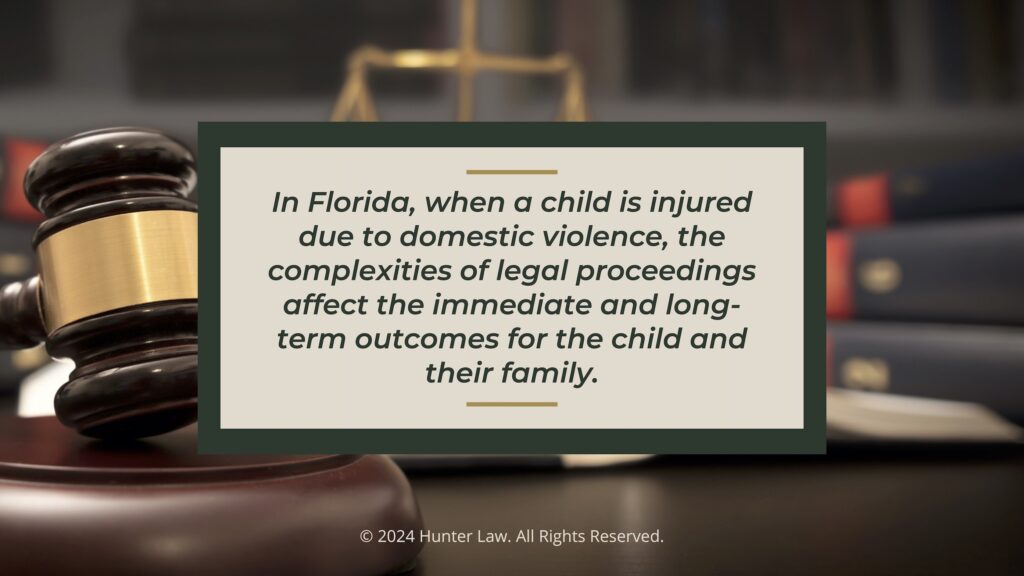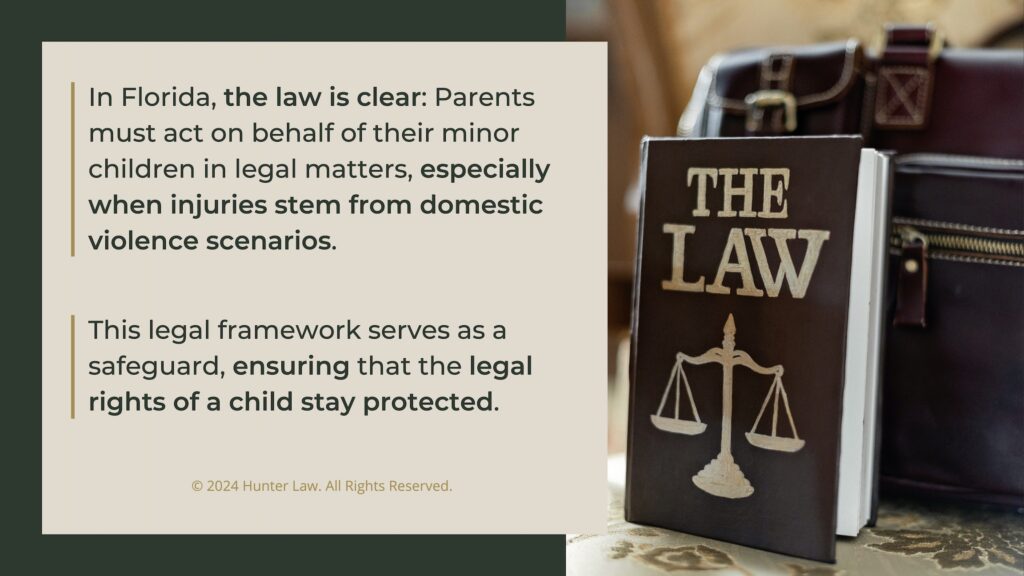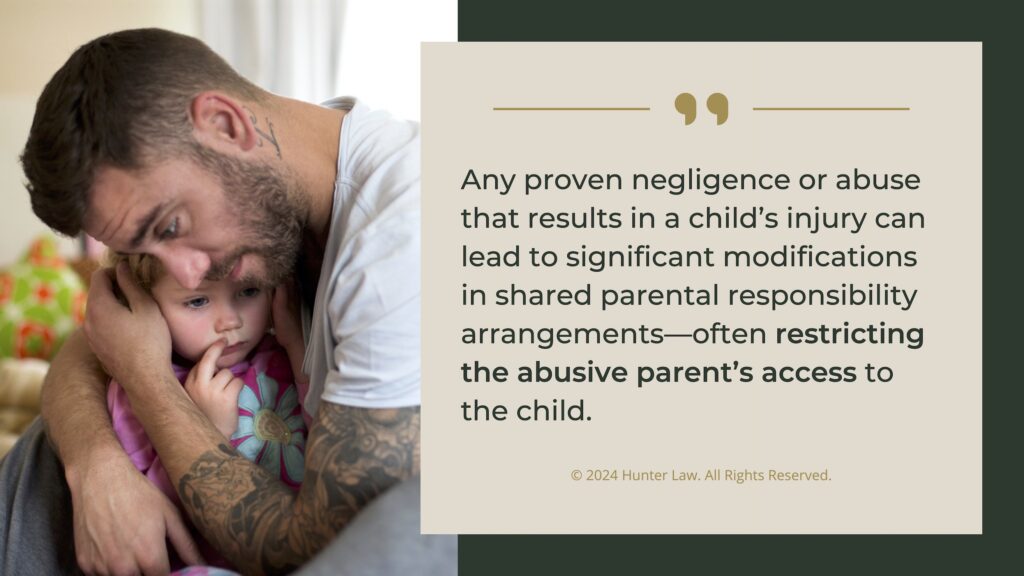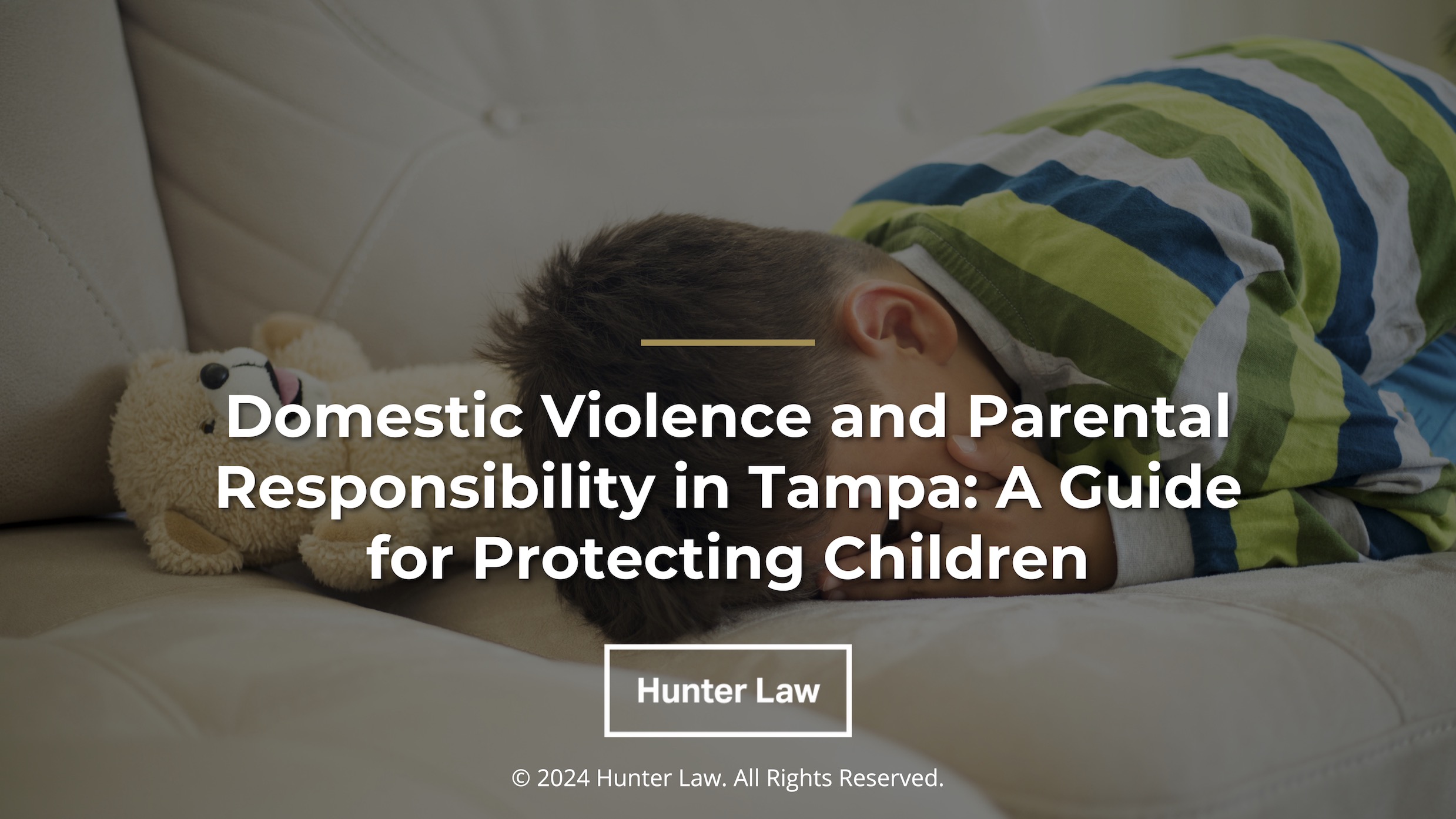The complexities of domestic violence and parental responsibility cases involving children require both empathy and an understanding of the law in Tampa, FL. At Hunter Law, we work to protect the rights of the youngest and most vulnerable. This is especially true in cases where family law needs to effectively work to limit the abusive parent’s access to your child. This article discusses how Florida’s legal system handles these sensitive situations after a child has been injured due to domestic violence.
The Role of Family Law In Domestic Violence
In Florida, when a child is injured due to domestic violence, the complexities of legal proceedings affect the immediate and long-term outcomes for the child and their family. Understanding how this affects child custody arrangements, known as parental responsibility in Florida, is extremely important for protecting your child’s rights and well-being throughout legal processes.

Impact on Parental Rights in Tampa, FL
If a child suffers an injury under circumstances involving domestic violence or negligence by a parent, this can lead to immediate and severe implications for that parent’s continuing parental rights. At Hunter Law, your domestic violence divorce attorney may present your case to the Florida courts so that they can reconsider custodial arrangements to prioritize the child’s safety. Your attorney will present details of the injury and the documentation of the incident to provide evidence to help the judge make findings of fact on what happened.
Parental Responsibility Under Florida Law
Parental responsibility in Florida law is about the rights and duties that you have as a parent when it comes to your child’s care, education, and welfare. This model typically puts an emphasis on making shared decisions for a child even when the parents aren’t married. However, when it comes to domestic violence cases, Florida law prioritizes the child’s safety over the concept of shared responsibility. This holds parents accountable for acting in ways that fundamentally support and nurture the child’s overall development and protection.
Time-Sharing in Florida
Time-sharing is a term used in Florida to describe the schedule parents follow to share custody of their children. This approach replaces the concepts of “custody” and “visitation” used in other states by defining the actual time the parents spend with the child. In domestic violence situations, the court adjusts the parents time-sharing in the parenting plan to make sure the child is not exposed to further harm.
Influence on Family Dynamics
The evidence gathered after the domestic violence injury, such as medical records, witness accounts,and expert testimonies, helps you support your case in family court. For example, if negligence is proven against a custodial parent or there is proof of domestic violence in the presence of a child, this could shift time-sharing rights and parental responsibilities towards the other parent. The emotional and psychological impact of the child’s injury might influence family court decisions regarding the most supportive living arrangements, aiming to provide stability and recovery support for the child.

Parental Responsibility and Legal Representation in Domestic Violence Cases
In Florida, the law is clear: Parents must act on behalf of their minor children in legal matters, especially when injuries stem from domestic violence scenarios. This adherence to parental responsibility allows for all decisions to prioritize the child’s welfare. For families navigating the aftermath of domestic violence, this legal framework serves as a safeguard, ensuring that the legal rights of a child stay protected. This diligence is extremely important in cases where the dynamics of domestic violence could otherwise complicate or undermine the child’s best interests.
Impact on Custody and Support in Cases of Child Abuse
The implications of a child’s injury due to domestic violence extend far into family law matters, particularly concerning custody and child support. Florida courts take allegations of abuse very seriously. Any proven negligence or abuse that results in a child’s injury can lead to significant modifications in shared parental responsibility arrangements. Often, this includes restricting the abusive parent’s access to the child, which reinforces the child’s safety and well-being as the priority.

Ensuring the Child’s Best Interests in Family Law Matters
At Hunter Law, we integrate family law expertise to safeguard minors injured due to domestic violence. We navigate the family law implications, focusing on the child’s best interests. Our team works hard to ensure that every legal step is handled meticulously to provide a secure and beneficial outcome for the child.
Take Action for Your Child’s Future
Working through domestic violence cases involving children within the framework of family law requires skilled legal guidance. At Hunter Law, you’ll find a committed team ready to advocate for your child’s rights. Contact us today to learn how we can support your family through these challenging times, ensuring your child’s future is secure and your rights are protected.


